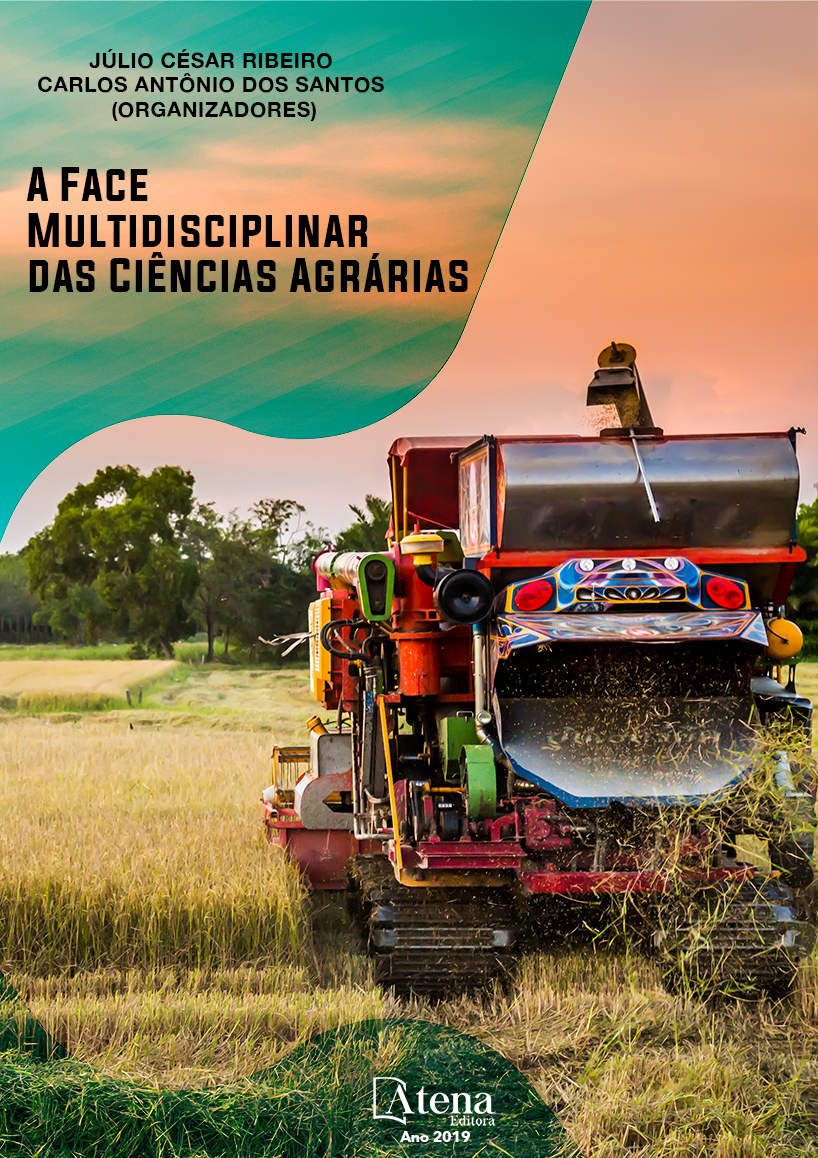
Production components and yield of bushing snap bean in conventional and organic production systems
Diferentes sistemas de produção influenciam o rendimento vegetal. No
entanto, são poucos os estudos sobre avaliação de feijão-vagem de crescimento
determinado em diferentes sistemas. Este estudo objetivou avaliar os componentes
de produção e o rendimento do feijão-vagem arbustivo em sistemas de produção
convencional e orgânico. O delineamento experimental foi o de blocos casualizados,
com três repetições. Os genótipos Isla Manteiga Baixo®, Isla Macarrão Baixo®, Feltrin
Vicenza Amarelo Baixo®, Feltrin Macarrão Napoli®, UEL 1 e UEL 2 foram submetidos
as seguintes determinações: dias para florescimento, altura de planta, número médio
de vagens por planta, massa, comprimento e diâmetro médio de vagem, e rendimento
de vagens comerciais. A análise de variância conjunta, em esquema fatorial 6x2
(genótipos x sistemas de produção) foi conduzida aplicando-se o teste F, com médias
comparadas pelo teste de Tukey (p<0,05). A antese dos genótipos Feltrin Vicenza
Amarelo Baixo, UEL 2, Isla Macarrão Baixo e Feltrin Macarrão Napoli é antecipada no
sistema convencional de produção. O genótipo UEL 2 apresenta maior precocidade na
antese dentro do sistema convencional. Isla Manteiga Baixo e UEL 1 produzem mais
vagens por planta no sistema convencional. No sistema orgânico, o genótipo Feltrin
Macarrão Napoli produz o dobro de vagens por planta em relação a Isla Manteiga Baixo.
O sistema orgânico proporciona maior altura de planta, e maior massa, comprimento
e diâmetro médio de vagem em relação ao sistema convencional. O rendimento
de vagens comerciais do feijão-vagem arbustivo não é alterado pelos sistemas de
produção e pelos genótipos.
Production components and yield of bushing snap bean in conventional and organic production systems
-
DOI: 10.22533/at.ed.9481924078
-
Palavras-chave: Phaseolus vulgaris, crescimento determinado, produtividade de vagens, tipos de cultivo.
-
Keywords: Phaseolus vulgaris, determined growth, pod productivity, growing type
-
Abstract:
Different production systems
influence the vegetable yield. However, there
are few studies that have evaluated bushing
snap bean in different systems. This study aimed
to evaluate the production components and
yield of bushing snap bean in conventional and
organic production systems. The experimental
design was a randomized complete block,
in a factorial 6 × 2 arrangement (genotypes x
production systems), with three replications. The
genotypes Isla Manteiga Baixo®, Isla Macarrão
Baixo®, Feltrin Vicenza Amarelo Baixo®, and
Feltrin Macarrão Napoli®, UEL 1, and UEL 2
were submitted to the following determinations:
days to flowering, plant height, medium number
of pods per plant, average pod mass, length,
and diameter, and yield of commercial pods.
A joint analysis of variance was conducted
by applying the F test, with mean comparison
performed using the Tukey’s test (p < 0.05).
Anthesis of the genotypes Feltrin Vicenza
Amarelo Baixo, UEL 2, Isla Macarrão Baixo,
and Feltrin Macarrão Napoli is anticipated in the
conventional production system. The genotype
UEL 2 shows higher precocity in anthesis within
the conventional system. Isla Manteiga Baixo
and UEL 1 produce more pods per plant in the
conventional system. In the organic system,
the genotype Feltrin Macarrão Napoli produces
double the number of pods per plant compared
with Isla Manteiga Baixo. The organic system
leads to greater plant height and average mass,
length, and diameter of pods in relation to the
conventional system. The commercial pod yield
of bushing snap bean is not altered by differences
in the production system or genotype.
-
Número de páginas: 15
- Guilherme Renato Gomes
- Felipe Favoretto Furlan
- Gustavo Henrique Freiria
- Leandro Simões Azeredo Gonçalves
- Lúcia Sadayo Assari Takahashi


